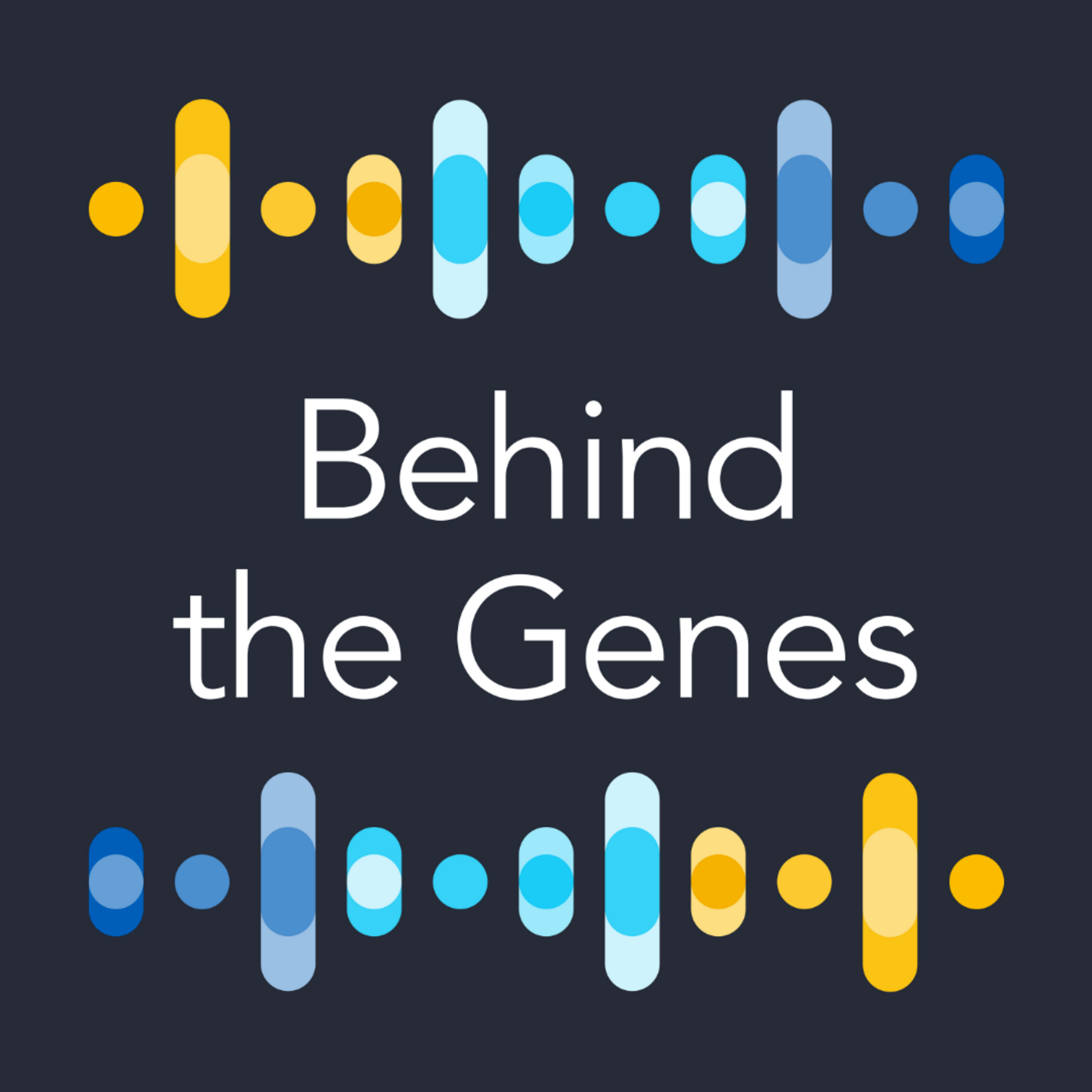Dr Nirupa Murugaesu and Professor Sir Mark Caulfield: Providing tailored care for cancer patients through whole genome sequencing
Description
In this instalment of The G Word, our guests engage in a compelling discussion centred around a recently published paper that supports the integration of whole genome sequencing into standard cancer care.
Our guests shed light on the transformative potential of combining health data with whole genome data. Discover how this innovative approach empowers doctors to deliver more personalised and effective care. Our guests delve into the findings of a landmark national study, unravelling the significance of identifying inherited cancers for patients and their families. The episode explores not only the scientific advancements but also the real-world impact on individuals facing a cancer diagnosis.
Our host Naimah Callachand is joined by Dr Nirupa Murugaesu, a Consultant in medical oncology at Guy's and St Thomas' NHS Foundation Trust, and the Principal Clinician for Cancer Genomics and Clinical Studies at Genomics England. And by Professor Sir Mark Caulfield, a Professor of Clinical Pharmacology at Queen Mary University of London, and who previously served as Chief Scientist for Genomics England and was instrumental in the delivery of the 100,000 Genomes Project.
"In cancer we were sequencing sections of the tumour and comparing them to DNA inherited from your mum and dad, and that comparison allows us to work out what is driving the cancer, what may be affecting its potential for treatment and how we might choose treatments for patients. So this is a real opportunity to create precision cancer care."
You can read the transcript below or download it here: https://files.genomicsengland.co.uk/documents/Podcast-transcripts/Whole-genome-sequencing-in-cancer-care.docx
Naimah: Welcome to the G Word. What does it mean if we can test for inherited genes?
Nirupa: It can influence how their cancer is treated. So it means that there may be certain types of therapy that are available if they have a specific inherited cancer gene, number one. It also can impact in terms of preventing further or other cancers related to those genes, and it may impact the type of surgery they have, and also the type of overall cancer treatment. And then finally, if they have got an inherited cancer, then, as I mentioned before, it may impact in terms of testing and screening for their family members.
Naimah: I'm your host Naimah: Callachand. Today, I'm delighted to be joined by Dr Nirupa Murugaesu, who's a consultant in medical oncology at Guy's and St Thomas' NHS Foundation Trust, and the principal clinician for cancer genomics and clinical studies here at Genomics England. And Professor Sir Mark Caufield, who's a Professor of Clinical Pharmacology at Queen Mary University of London, and who previously served as chief scientist for Genomics England and was instrumental in the delivery of the 100,000 genomes project. Today, Mark and Nirupa are going to discuss key findings from a recent paper that's just been published in Nature. If you enjoy today's podcast, we'd really love your support. Please like, share and rate us on wherever you listen to your podcasts. Now, let's get into the interview. So first of all, Mark, I wondered if you could give me a bit of background on the 100,000 genomes project?
Mark: So the 100,000 genomes project started in July 2013 following an announcement by the then prime minister, David Cameron, that the UK would be the first health system in the world to sequence 100,000 whole genomes, which is as much as you and I can read of the genetic code. In the case of cancer, which we focused on here, in cancer we were sequencing sections of the tumour and comparing them to DNA inherited from your mum and dad, and that comparison allows us to work out what is driving the cancer, what may be affecting its potential for treatment and how we might choose treatments for patients. So this is a real opportunity to create precision cancer care.
Naimah: And Nirupa, can you tell me what
More Episodes
In this explainer episode, we’ve asked James Duboff, Strategic Partnerships Director at Genomics England, to explain how genomic data can be used in drug discovery.
You can also find a series of short videos explaining some of the common terms you might encounter about genomics on our YouTube...
Published 05/22/24
Published 05/22/24
Ethical considerations are essential in genomic medicine and clinical practice. In this episode, our guests dive into the details of ethical principles, highlighting how they can be brought into practice in the clinic, whilst considering the experiences and feelings of patients and...
Published 05/15/24


